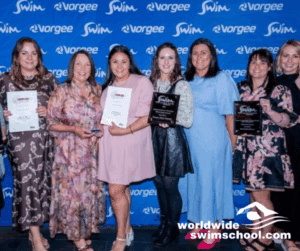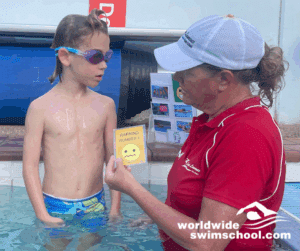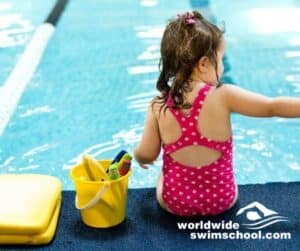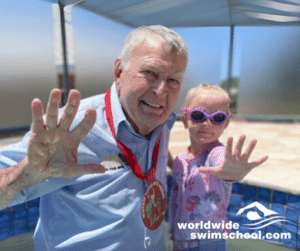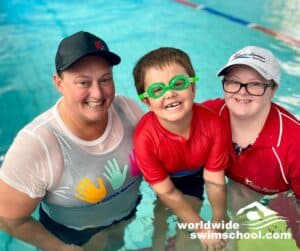Research Study
This Early-Years Swimming Research Project was conducted over four years. In addition, it centred on an examination of the possible benefits that may accrue for under-5s who participate in swimming lessons. For example, the study used a number of research techniques to explore the benefits of swimming in the early-years.
The study focused on answering questions, such as:
- What, if any, are the physical, emotional, social and intellectual benefits of learning to swim for under-5s?
- What factors enhance the benefits in different learn-to-swim contexts?
The study investigated whether or not young children gain more than just swimming skills if they participate in early-years swimming.
Thanks to Professor Robyn Jorgensen’s study at Griffith University, we understand the benefits of baby teaching. This modern study builds on German Professor Liselotte Diem’s research many years ago. It has alerted society all around the world to the benefits of a caring learn to swim program for infants.
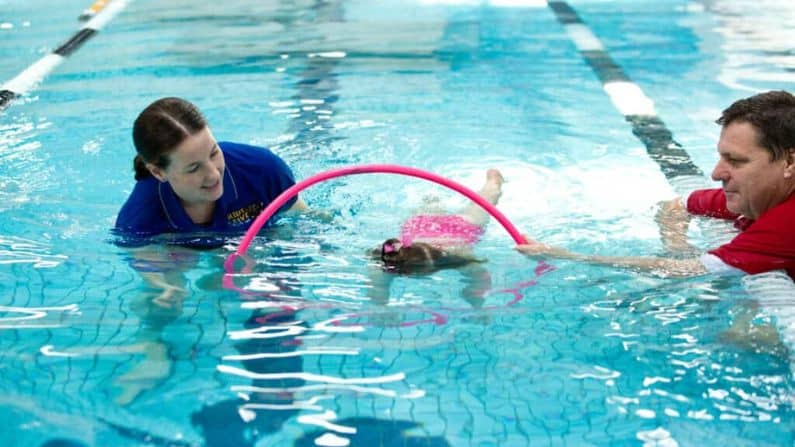
Research Study Results
In conclusion, Professor Robyn Jorgensen shed some amazing facts on the social emotional physical and intellectual development of children who are exposed to swimming lessons at a young age.
Lead researcher Professor Robyn Jorgensen says the study shows young children who participate in early-years swimming achieve a wide range of skills earlier than the normal population.
In addition, the physical benefits of swimming are long known. The four-year study reveals swimming can also lead to academic success. Professor Robyn Jorgensen said the results indicated children who swam had an advantage over non-swimming children when starting school.
There are important points from the research study, such as:
- children under five who participate in swimming have a lot more gains in their motor development, their cognition, their language development and their mathematical reasoning than the normal population.
- many of these skills are those that help young children into the transition into formal learning contexts such as pre-school or school.
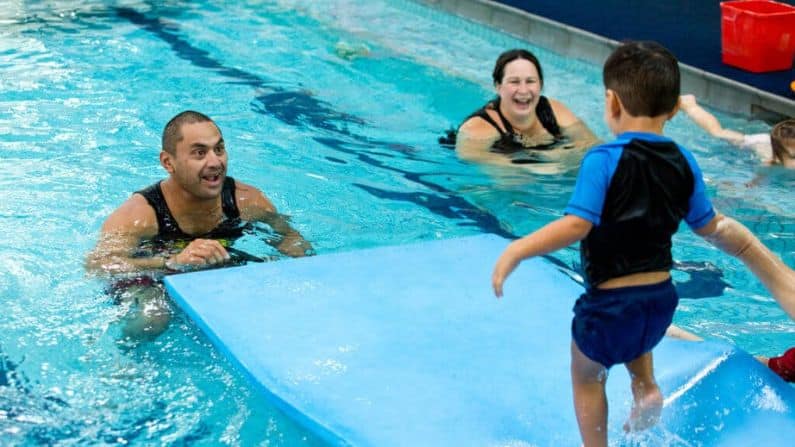
Further Reading
You can access the full report to read today.
Looking for more resources for under 5 year’s? Visit Kids Alive.
We have some more infant aquatic articles at World Wide Swim School, take a look today.
Remember as parents you are the first learn-to swim teacher your child has via bath time exposure. It is vital as parents you have a good understanding of, and a knowledge of, good aquatic education procedures.
Join our community and keep up to date with new articles, special offers - it is free to join!
Looking for more information on learning how to swim - don't go past the Swim Library.

